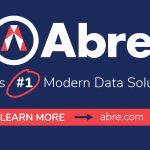June 6, 2023
Birmingham, 6th June: PebblePad, the renowned Learning Journey Platform, made two significant announcements during its annual customer event in Birmingham, UK, further solidifying its position as a leader in educational technology.

PebblePad Celebrates Global Momentum with Ten New Customers Joining the Platform:
PebblePad proudly welcomes ten new institutions from around the world to its expanding customer base, showcasing the increasing recognition of its Learning Journey Platform. The partnerships highlight the platform’s ability to create impactful learning experiences at scale and enable students to demonstrate essential skills like critical thinking, digital literacy, and discipline knowledge. These new customers include prestigious institutions such as Cardiff University, the Royal Veterinary College (RVC), University of the West of Scotland, University of Sunderland, University of Sussex, the Royal College of Physicians, Universal College of Learning (UCOL)/Te Pūkenga, Ursuline College, Langara College, Georgian College, and Northern Metropolitan TAFE. With diverse educational sectors represented and institutions located in countries worldwide, this expansion signifies the global momentum PebblePad is gaining.
The PebblePad Learning Journey Platform empowers students to confidently articulate and showcase their knowledge, skills, achievements, and unique qualities. By leveraging PebblePad’s tools and capabilities, learners can actively participate in their learning journey, receive timely feedback, and build strong relationships with peers, teachers, and external facilitators. This customer growth reflects the enduring value and quality of PebblePad’s award-winning platform.
Have your Say: PebblePad Announces Ground-breaking Global Study on AI in Higher Education:
PebblePad also revealed its ongoing work on a pioneering global study focused on the intersection of Artificial Intelligence (AI) and Higher Education (HE). This ground-breaking initiative, unveiled at the annual UK user conference, demonstrates PebblePad’s commitment to driving innovation in the education sector.
Recognizing the transformative power of AI in higher education, PebblePad embarked on a comprehensive study to help institutions effectively and ethically embrace AI. The study involved surveying over 1,500 students from various academic disciplines and geographical regions, gathering valuable insights into their experiences and expectations regarding AI in education. Now, PebblePad is extending its reach to educators, inviting them to contribute their perspectives and expertise to the study.
RECOMMENDED: https://global-edtech.com/category/edtech-market/
The outcome of this ambitious research endeavor will be an instructional report providing practical advice and guidance on optimizing the use of AI in educational practices. The report will cover key areas such as AI-powered personalized learning experiences, intelligent assessment and feedback mechanisms, ethical considerations and privacy concerns, AI-supported administrative processes, efficiency improvements, and future trends in AI adoption in higher education.
PebblePad encourages educators, administrators, managers, and other stakeholders in the Higher Education community to participate in the study and shape the future of AI in education. By contributing their insights and experiences, individuals can help develop best practices that benefit both students and institutions. To participate in the study and share your perspective, visit the survey link: Survey – Generative AI Tools in Higher Education.
“We believe that AI has the potential to enhance teaching and learning practices in Higher Education, but it must be approached thoughtfully and responsibly,” said Kenny Nicholl, Chief Operating Officer at PebblePad. “Through this study, we aim to empower universities with actionable insights and practical advice, enabling them to leverage AI effectively in their teaching, learning, and administrative processes.”













